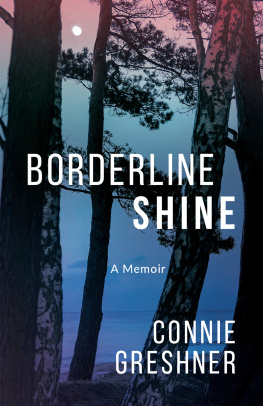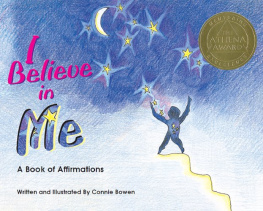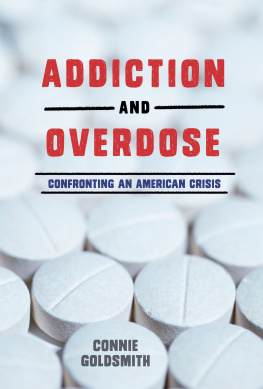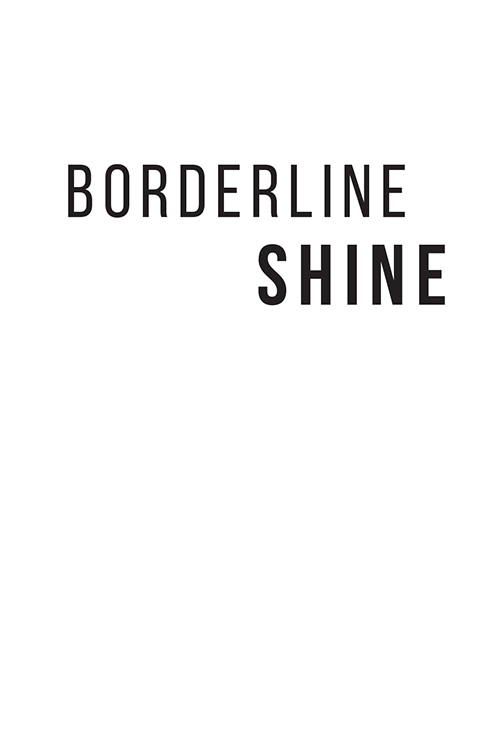Copyright Connie Greshner, 2020
All rights reserved. No part of this publication may be reproduced, stored in a retrieval system, or transmitted in any form or by any means, electronic, mechanical, photocopying, recording, or otherwise (except for brief passages for purpose of review) without the prior permission of Dundurn Press. Permission to photocopy should be requested from Access Copyright.
Publisher: Scott Fraser | Acquiring editor: Rachel Spence | Editor: Allison Hirst
Cover designer: Sophie Paas-Lang
Cover image: istock.com/slavemotion
Printer: Webcom, a division of Marquis Book Printing Inc.
Library and Archives Canada Cataloguing in Publication
Title: Borderline shine : a memoir / Connie Greshner.
Names: Greshner, Connie, 1970- author.
Identifiers: Canadiana (print) 20190200901 | Canadiana (ebook) 2019020091X | ISBN 9781459746121 (softcover) | ISBN 9781459746138 (PDF) | ISBN 9781459746145 (EPUB)
Subjects: LCSH: Greshner, Connie, 1970- | LCSH: Borderline personality disorderPatientsCanadaBiography. | LCSH: Psychic traumaPatientsCanadaBiography. | LCSH: Adult children of dysfunctional familiesCanadaBiography. | LCSH: AddictsCanadaBiography. | LCSH: Mental health counselorsCanadaBiography. | LCGFT: Autobiographies.
Classification: LCC RC569.5.B67 G74 2020 | DDC 616.85/8520092dc23
We acknowledge the support of the Canada Council for the Arts and the Ontario Arts Council for our publishing program. We also acknowledge the financial support of the Government of Ontario, through the Ontario Book Publishing Tax Credit and Ontario Creates, and the Government of Canada.
Care has been taken to trace the ownership of copyright material used in this book. The author and the publisher welcome any information enabling them to rectify any references or credits in subsequent editions.
The publisher is not responsible for websites or their content unless they are owned by the publisher.
Printed and bound in Canada.
VISIT US AT
 dundurn.com
dundurn.com
 @dundurnpress
@dundurnpress
 dundurnpress
dundurnpress
 dundurnpress
dundurnpress
Dundurn
3 Church Street, Suite 500
Toronto, Ontario, Canada
M5E 1M2
In memory of my mother, Marjorie Ann (Lemke) Greshner, May 18, 1944June 23, 1979.
Thank you for your love; thank you for my life.
I see you.
Only when were brave enough to explore the darkness will we discover the infinite power of our light.
Bren Brown
TABLE OF CONTENTS
FOREWORD
By Theresa Therriault
November 26, 1970. A nine-year-old girl in flannel pyjamas is awakened by a hand on her shoulder and a soft whisper. Her younger sister, asleep beside her, stirs.
Shhhh, her dad says. Just wanted you to know that you have a new baby sister. Drowsy with dreaming, she murmurs back, Thats nice, Daddy. Are you and Mommy happy about that?
And how is it that this same girl at seventeen years of age is diagnosed with a stomach ulcer and spends many evenings picking layers of scabs off her eight-year-old sisters scalp? Stress-induced psoriasis, the doctor says. Coaxing her to sit still, keeping them both distracted with stories, she lovingly rubs ointment on the oozing sores.
Life happens.
Present day. I have been teaching a course in suicide intervention for many years. On the morning of Day One, we break into small workgroups and spend time talking about our experiences with suicide. As a senior trainer, I am especially mindful of what I choose to share, knowing that I am charged with balancing safety and challenge for the participants. I also have a responsibility to ensure that I am not perpetuating any stigma related to suicide.
Sadly, I have numerous examples to draw upon. One that I find myself using fairly often is about my sister Connie.
I give a carefully worded preamble that highlights a family tragedy, my sister being taken away at a very young age, and her struggles with belonging, addiction, and suicidal behaviour. I tell the group that I recall a time many years ago when she had attempted suicide and one of her doctors spoke to me outside of her hospital room. He said, Your sister is chronically suicidal and she will never get better.
Really?!
I end my story by saying how untrue those words have proven to be. I tell the group that my sister is now a mental health therapist with a masters degree in clinical psychology and how, after years of unbelievable struggles, she is living her dream on the West Coast of British Columbia. She has a wonderful family, two amazing daughters, a loving husband, many dear friends, and a meaningful career.
This is the story of my baby sister feisty, funny, fiercely devoted to family and friends, and an incredibly courageous, resilient, and beautiful woman.
Really.
PART 1
COMPLEX TRAUMA
Single incident trauma is related to an unexpected and overwhelming event such as an accident, natural disaster, a single episode of abuse or assault, sudden loss, or witnessing violence.
Complex or repetitive trauma is related to ongoing abuse, domestic violence, war, ongoing betrayal, often involving being trapped emotionally and/or physically.
Developmental trauma results from exposure to early ongoing or repetitive trauma (as infants, children and youth) involving neglect, abandonment, physical abuse or assault, sexual abuse or assault, emotional abuse, witnessing violence or death, and/or coercion or betrayal. This often occurs within the childs care giving system and interferes with healthy attachment and development.
Trauma-Informed Practice Guide, 2013
SMALL CHILD
Small child. Time bends. I observe:
Noise. Rushing, jangly energy. There is my mom. Short curly blondish-red hair, trying to smile, always trying. She works in the house, caring for five kids. She is young and pretty. Watching, waiting, laughing. She cooks and cleans, and I watch her sometimes. Special times when she is really with me. Spinning a globe, pointing a finger. Laying out a marvellous array of Christmas crafts. I am often merely in her shadow as we tend to business in the little town at the post office, grocery store, driving here and there in the long green Buick. I recall few conversations. I am a small child, watching, waiting.
More often I am my fathers shadow. We drive in the red pickup truck; go fishing, to construction sites, to the gravel pit. He also is quiet, though softly laughs when I do speak. I know sometimes he is sad and anxious. Most of the time he is sick. This dad is not the man crashing and raging, driving his family before him. That dad is a shadow figure the others hide me from. That dad demon is not the one I curl up with, watching hockey, not the one I listen to sleeping, his snoring my comfort. Not the one who silently enters my room and checks that I am sleeping safely every night. The demon dad is seething, full of rage, hated and hating.

















 dundurn.com
dundurn.com @dundurnpress
@dundurnpress dundurnpress
dundurnpress dundurnpress
dundurnpress